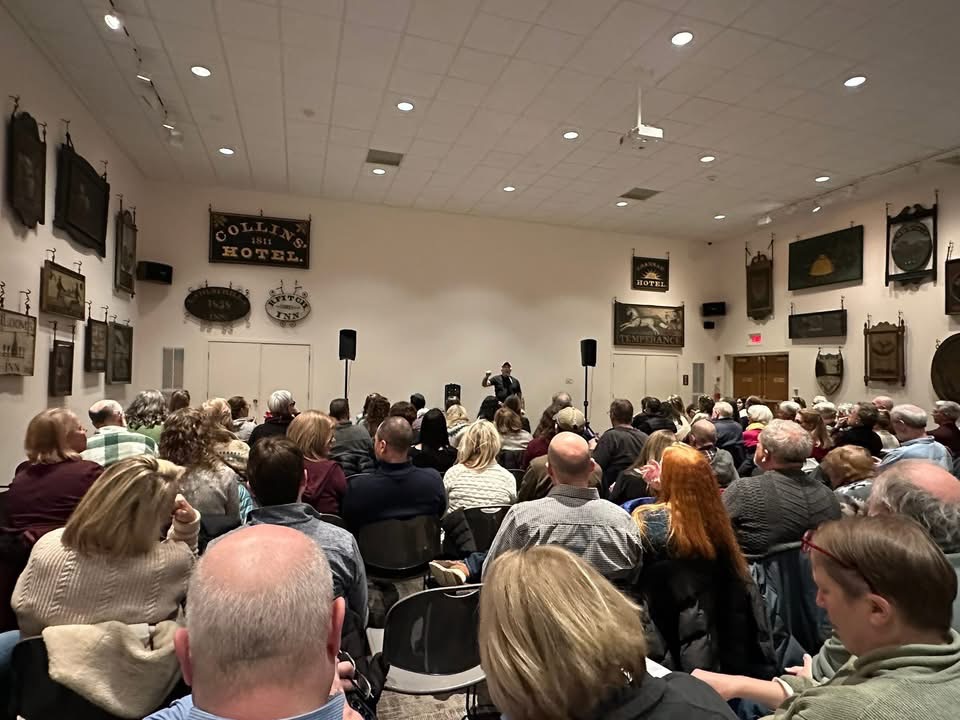I saw Springsteen on Wednesday night. After watching him perform for almost four hours, I felt so fortunate to have seen him sing and play almost a dozen times over the course of my lifetime.
As I exited the stadium, I thought, “That man can never die. No one does it like him. No one will ever do it that way again. We need that man.”
It got me to thinking:
If the Gods were kind and just, they would allow humankind to choose immortals. Human beings who we decide are so universally unique and beloved and needed that we can freeze them in time. Stop their aging process. Hold them as we have them now and forever more.
And it’s not like we need an infinite amount of immortals. Let’s say that we get ten names. Ten immortals to keep with us forever.
This is what I proposed to my friends as we left the stadium.
Who would those ten people be?
I added the stipulation that the person needs to be alive today. While someone like Abraham Lincoln might be deserving of immortality, once a person is dead, they cannot be brought back.
Given these parameters, which ten people deserve immortality? Who would we choose to keep in place forever?
Bruce Springsteen is on my list.
I have yet to find a second name worthy of inclusion.










This Post Has 0 Comments
Every time I hear the praises sung for Bruce Springsteen, I either feel like tearing out my hair, or smiling the condescending look of the boddhisatva. I also think of Brave New World, quite fitting. Springsteen is the musician of the Gammas and lower Betas. Springsteen’s voice and music is pedestrian and is only occasionally exceptional. He has a few tunes that have real artistic merit.
In his place is the leaps and bounds more deserving Donald Fagen, of Steely Dan. Among musicians, he is thought to be a composer, lyricist, and singer of otherworldly melodies. His transitions from measure to measure are works of art, seamless, stunning, and always fresh.
I believe that when human intelligence is enhanced, only then will the world understand what those with more critical ears have already been blessed to hear.
The musician, completely
My wife loves Steely Dan.
I do not. I can’t stand Steely Dan.
But I have never felt the need to pull my hair out or look down my nose when someone tells me that they love a particular artist that I do not. I recognize that the perception of artists change over time. Edgar Allen Poe, Vincent Van Gogh, Herman Melvillle…. so many have died in obscurity only to rise to greatness later. And others have been recognized as great in their time only to fade into obscurity in later generations. What we think now about art is both relevant to the moment and oftentimes irrelevant to the future.
If my wife loves Steely Dan, who am I do disparage her appreciation or enjoyment for that music? Who am I to tell her what is good and what is not? There are a multitude of reasons why one person might enjoy a song and another person does not, but it is not an indictment of that person nor a reason to praise him or her.
Fair enough. It really bugs me that someone with the brilliance of Fagen is routinely ignored by the masses. Mary McPartland, no less, said in her interview with Fagen, that in her estimation, he is an equal to Ellington, Armstrong, Copeland, et al. That can be heard here.
http://www.npr.org/2014/04/18/304552322/steely-dan-on-piano-jazz
Let’s say we select ten individuals who are currently alive today and grant them immortality. What if in 20 years a more deserving (by some most likely unfounded criteria) person is born. Do we (or the gods) revoke one of the other person’s purported immortalities, or do we amend the original number from 10 up to 11? If we do not opt for the latter option, then we really can’t call what we are granting these people as immortality, for it is only a temporary state to be denied at a later time. However, if we choose the latter option, then we will clearly end at point where we can no longer add anymore immortals because there will not be sufficient resources (e.g., space) on Earth to maintain the livelihood of the non-immortals. Therefore, we must rule that no one is granted immortality.
However, there is a work-around. The truly great will create some lasting reflection of themselves that lasts forever (or at least for much longer than they did). Homer, for example, created something that remains with us today. If you are correct that Springsteen is great enough for immortality, then 200, or 2000, years from now, his music will still be known. Maybe Jeff (below) is correct that Donald Fagan will remain (however, as much as I love Steely Dan, I’m not sure it will).
My issue with the idea that the immortality will be achieved through the work is that some people need to be experienced in the present to be appreciated. Springsteen in concert – playing live- is something that I never want to go away.
I’ve recently proposed that Jon Stewart be added to the list – provided he agrees to return to The Daily Show. His commentary on the news of the day is what makes him exceptional, but his body of work as it currently stands will not hold up over time. He need to be present in the moment in order to be appreciated.
There in lies the difference between the composer and the performer. For most of history, great performers were condemned to obscurity after their own time. However, for the last century, recordings now make it possible to perpetuate a performance. I am not sure whether that will completely save the great performers. A recording does not quite capture the entirety of the performance and the ambiance that makes being at a performance much more than just hearing it. If immortality is what one wants, they should probably still opt to be the composer and then work to create something novel that embeds within it some universal aspect of humanity.
We may be lucky that Beethoven lost his hearing. When he first moved to Vienna, he was considered the best virtuoso pianist around. Losing his hearing made it impossible for him to remain as a performing pianist. It is unclear how much this actually influenced his compositions, but it at least made him focus more time toward composition than to performing.